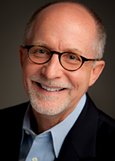Editorial: Seeking sense in a season of fear
What prospective calamity do you fear most?
(A) Terrorism
(B) Economic malaise
(C) Immigration
 Editor Marv Knox(D) The reality any one of the current U.S. presidential candidates actually will become “leader of the free world”
Editor Marv Knox(D) The reality any one of the current U.S. presidential candidates actually will become “leader of the free world”
(E) All of the above
If pressed to choose just one tremble-worthy topic, mark me down for (D) The crop of candidates clamoring to be president. Given the complexity of the other three challenges, not to mention all the crises the winner will face, the POTUS prospects don’t inspire confidence and, in fact, often foment fear.
Ironically, that’s an emotion they exploit. They fan fears—some legitimate, some bogus—while preening, flexing and telling America, “Don’t worry; I got this.”
To be fair, many of them have demonstrated talent and admirable accomplishment in non-presidential roles. The cast includes successful governors and business leaders, prodigies and brilliant students, effective lawmakers and public servants, and even one whose profession saves lives.
The freak show
But envisioning a courageous, effective and galvanizing statesperson arising out of this crew beggars the imagination. The freak-show tone of present-day presidential politics—what columnist E.J. Dionne termed “this campaign’s stunningly low level of seriousness”—intensifies that challenge. If you’ve been following the debates, stump speeches and appearances on news programs, you can cite a litany of examples.
Unfortunately, frivolity is a nonpartisan issue. It applies to Republicans and Democrats alike. And so it afflicts all Americans.
You may be wondering what this has got to do with faith and why it’s a topic for consideration by a Baptist news organization. Well, Christians are citizens of two kingdoms. Heaven may be our ultimate home, but in the meantime, we live here on Earth. We should be exemplary citizens, doing our part to elevate the level of public—and political—discourse.
Given the reach and immediacy of mass media, you may think that’s an impossible task. And, of course, it is impossible if we never try. But we have yet to test the power of an infinite number of calm, reasonable, respectful voices. People of faith can be heard in myriad venues—among friends and fellow parishioners, at work and in the community, on social media, in letters to the editor and in correspondence to candidates—and wherever sensible speech can be heard.
Let them know
What if we demanded presidential candidates turn from their superficial, fear-mongering, demagogic, over-simplified and loud ways? What if we let it be known we will:
Reject appeals to fear, simple solutions, name-calling, stereotyping, racism and other divisive actions.
Discount discussion of challenges that does not include detailed solutions.
Support bipartisan efforts to unite for solving problems rather than ploys to exploit those problems for selfish gain.
Condemn statements that question the patriotism of people of goodwill, no matter their race, religion, ethnicity, political party or other affiliation.
Value and protect the religious liberty of all people.
Research candidates’ claims and let them know their lies and misrepresentations will cost them our votes.
Refuse to participate in partisanship—including Facebook likes and Twitter tweets—that divides and demeans, and encourage our friends and family to take similar stands.
Vote for candidates who will work tirelessly to bring our communities, state and nation together, because united we stand; divided we fall.
A few weeks ago, an editorial in this space called on churches to “provide spaces for healthy conversation and healing among divided Texans.” Some readers called that a naive plea. This idea of exerting positive influence on political speech is far grander, larger and harder. But what is faith if we do not believe the power of the Holy Spirit can multiply our efforts and generate productive responses to global crises? Where is the faith we profess if we wring our hands, quake in fear and become part of the problem rather than the solution?
Lamenting our future has become a national pastime. Republicans cite one set of reasons; Democrats describe another. Both groups’ concerns are legitimate. But both sides contribute to the problem when they assume they alone are correct and the other is wrong.
Resolve to work together
We’re all doomed if we do not restore commitment to the common good and resolve to work together rather than tear each other apart.
Who better than Christians to lead by Jesus’ example: Putting others first. Valuing sacrifice ahead of self. Reasserting service as the hallmark of leadership. Establishing the greater good. Those are loving actions. Patriots who truly love our nation—and, imitating Jesus, the whole world—embody them all.
“Perfect love casts out fear” (1 John 4:18).